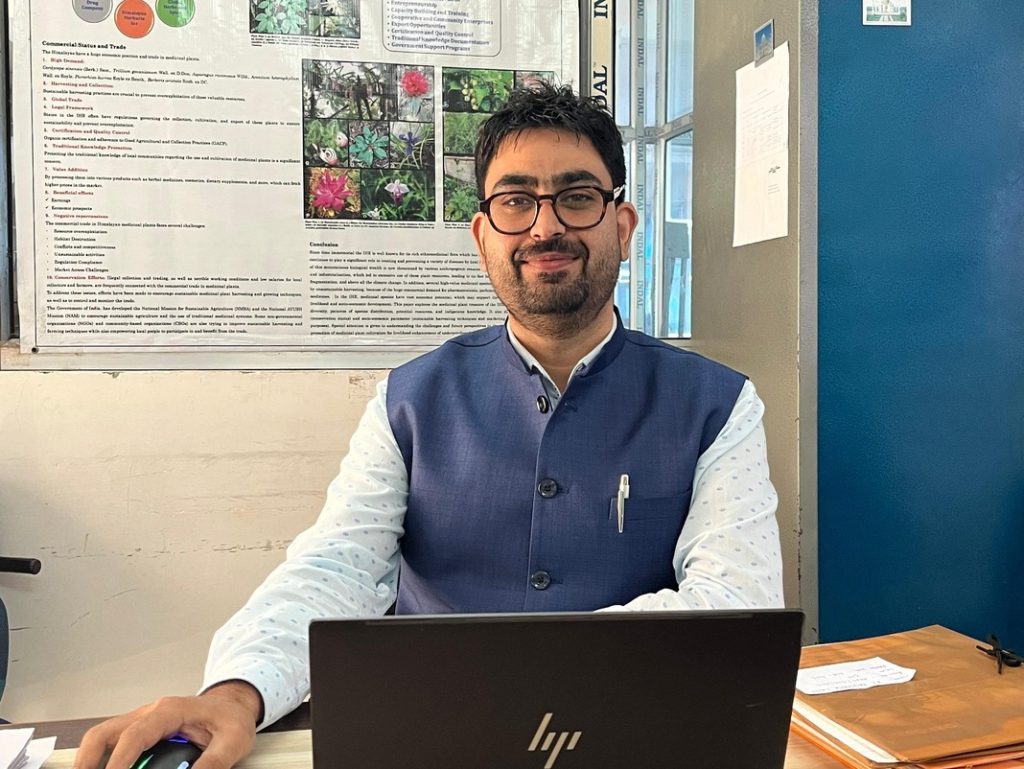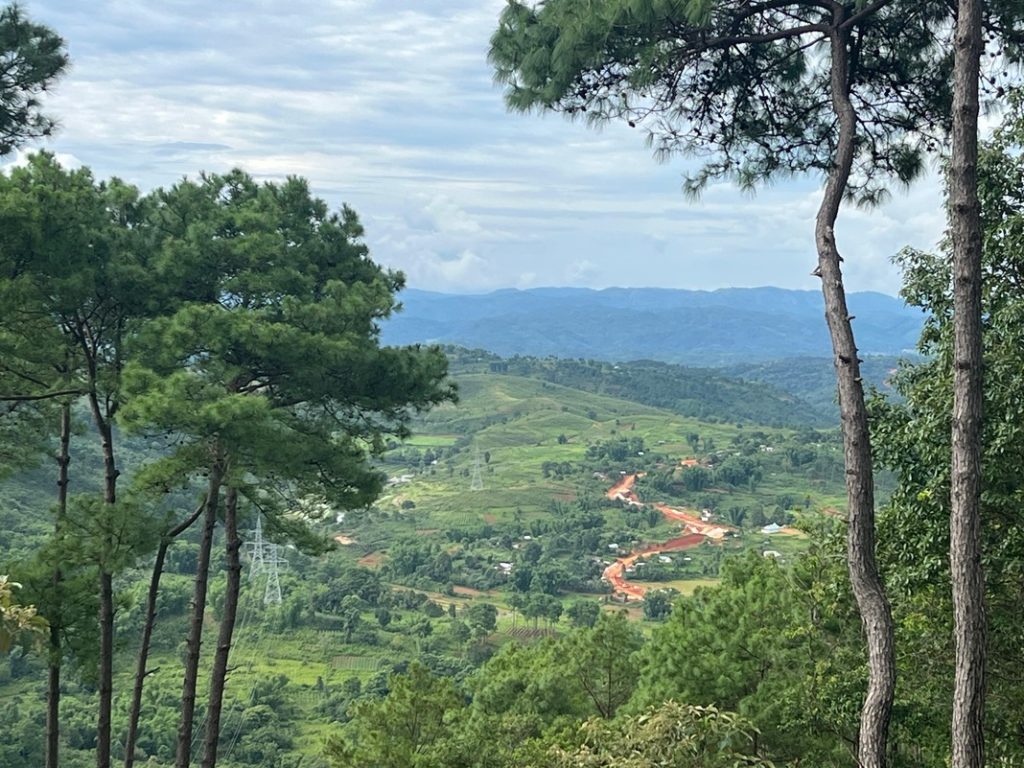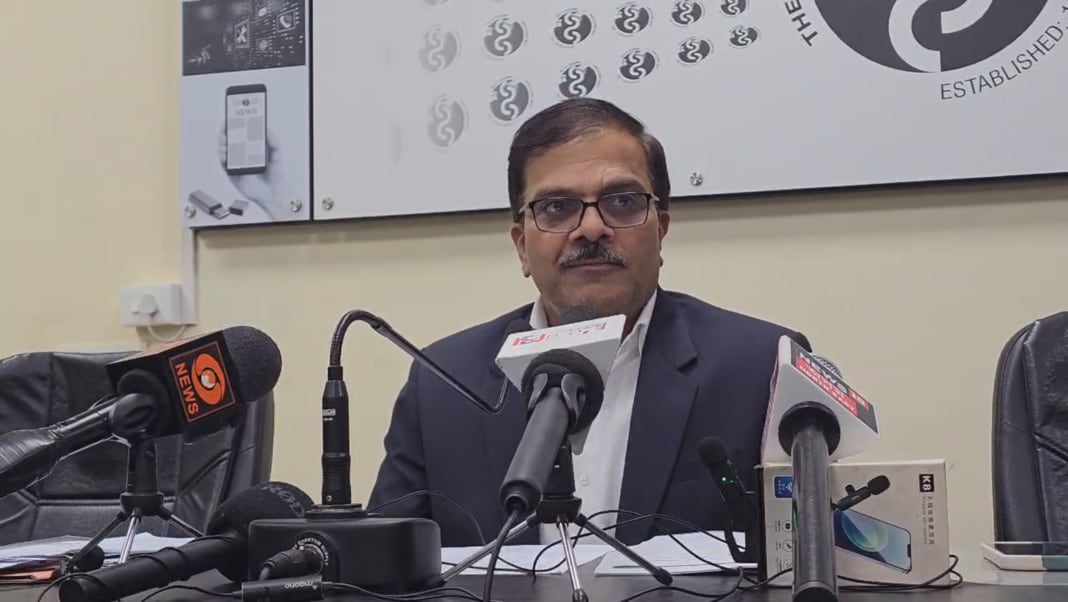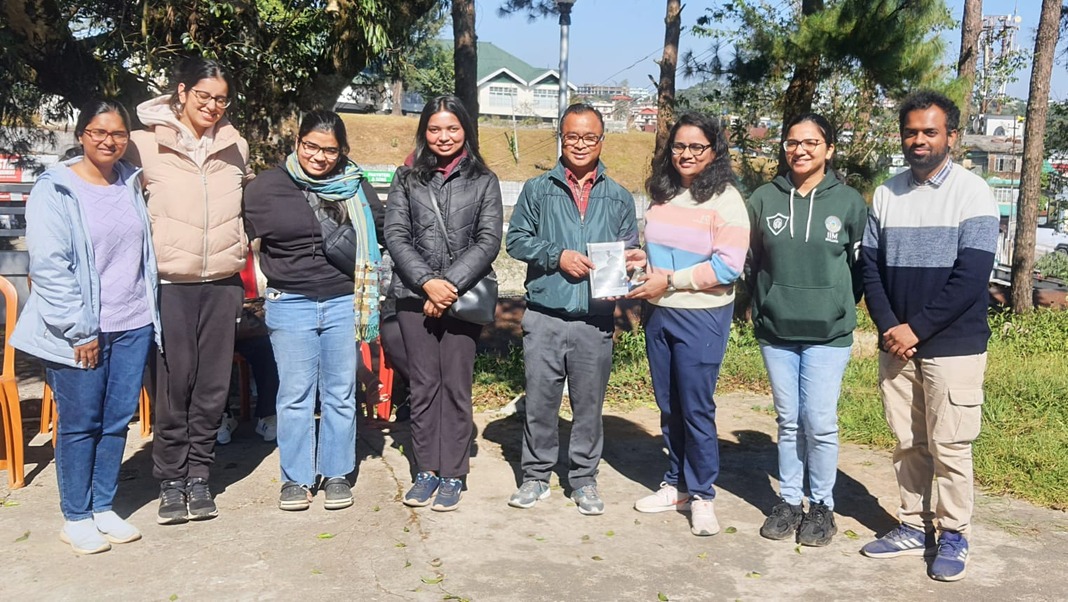ROOPAK GOSWAMI
Shillong, Dec 3: Amid growing global focus on biodiversity restoration and sustainable forest management, Meghalaya’s forests have emerged as a critical case study in the international effort to reverse ecological degradation.
In a significant development, Dr. Nazir Ahmad Bhat, Assistant Professor of Botany at the University of Science and Technology Meghalaya (USTM), has been awarded a prestigious international research collaboration project funded by the European Forest Institute (EFI), Finland.

The European Forest Institute, an international organization established by European states, is a leader in global forest-related research and policy initiatives. EFI’s efforts include studying the biodiversity impacts of large-scale restoration projects and collaborating with implementers to address research gaps. Their overarching goal is to develop a comprehensive global database on the biodiversity outcomes of afforestation and reforestation projects, making this project in Meghalaya a key contribution to their mission.
The project, titled “Biodiversity Impacts of Forest Landscape Restoration in Meghalaya, India,” aims to assess the long-term ecological and biodiversity outcomes of forest landscape restoration (FLR) in the region. Meghalaya’s forests, part of the Indo-Myanmar biodiversity hotspot, represent a unique convergence of the Indo-Malayan and Eastern Himalayan biogeographical zones, fostering exceptional biodiversity. However, decades of deforestation, mining, and land-use changes have placed this fragile ecosystem under severe pressure, making it a focal point for global restoration efforts.

A Global Initiative with Local Impact
Dr. Bhat’s research will evaluate the effectiveness of afforestation, reforestation, and revegetation (ARR) initiatives in reversing biodiversity loss and restoring ecological balance. Advanced field surveys and cutting-edge technologies will be used to measure biodiversity recovery over time, providing valuable insights for both local conservation strategies and global FLR initiatives.
This research not only supports Meghalaya’s restoration efforts but also aligns with the European Forest Institute’s mission to build a comprehensive global database on the biodiversity impacts of large-scale forest restoration. The project’s findings will fill critical knowledge gaps and contribute to shaping global policies on forest management and biodiversity conservation.

Meghalaya’s Ecological Significance
Meghalaya’s diverse ecosystems, ranging from tropical rainforests to sub-tropical woodlands, are home to numerous endemic and threatened species. Despite the presence of national parks, wildlife sanctuaries, and sacred groves, only 6% of the state’s land enjoys strict protection. This limited coverage underscores the urgency for effective restoration and sustainable management to safeguard its ecological future.
Bridging Local and Global Conservation Goals
The collaboration between USTM and EFI highlights the growing importance of regional ecosystems in addressing global environmental challenges. By integrating advanced research with community-based conservation practices, this project serves as a model for sustainable biodiversity restoration in ecologically sensitive regions worldwide.
The project not only brings international recognition to USTM but also reinforces Meghalaya’s role as a beacon of biodiversity conservation.




